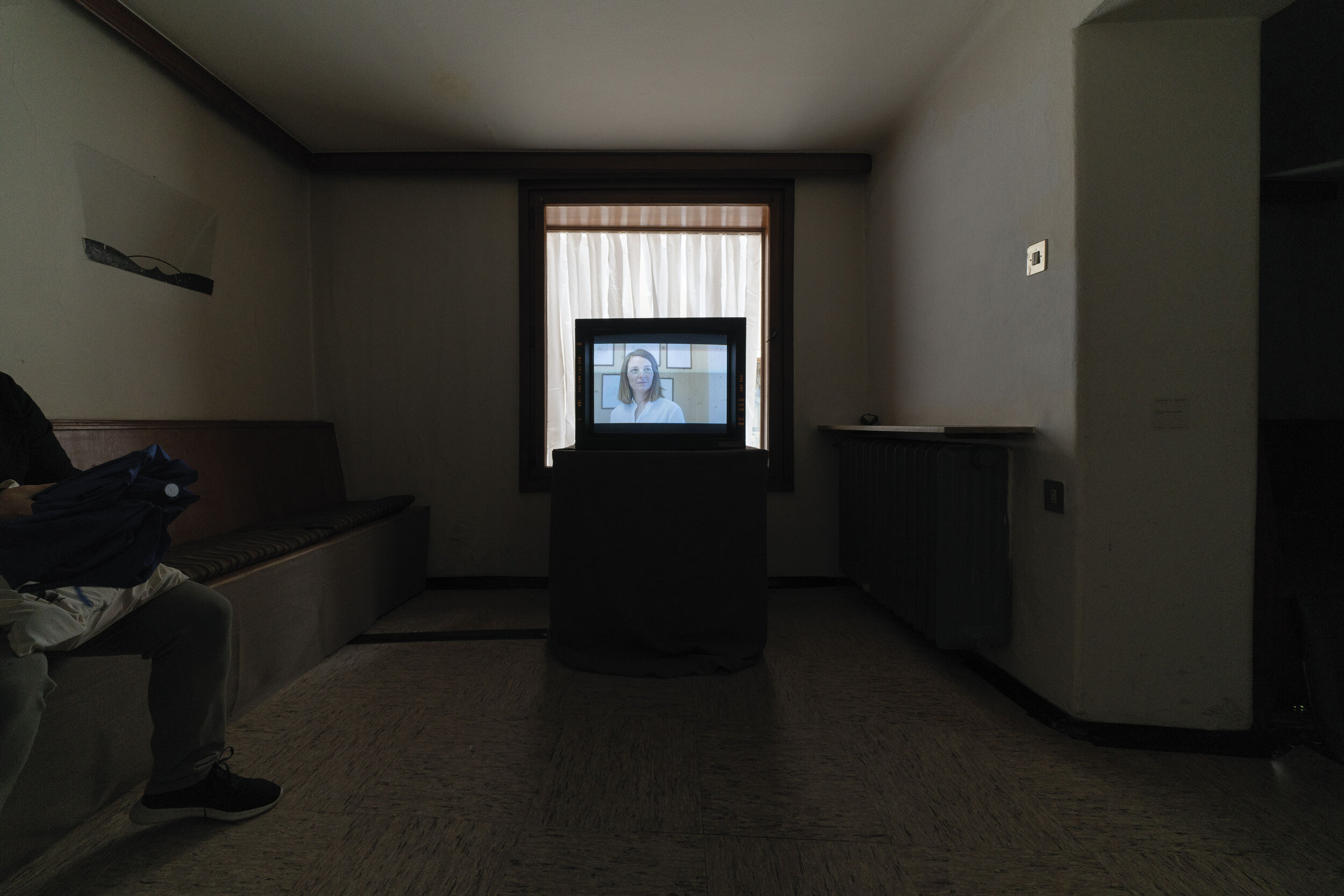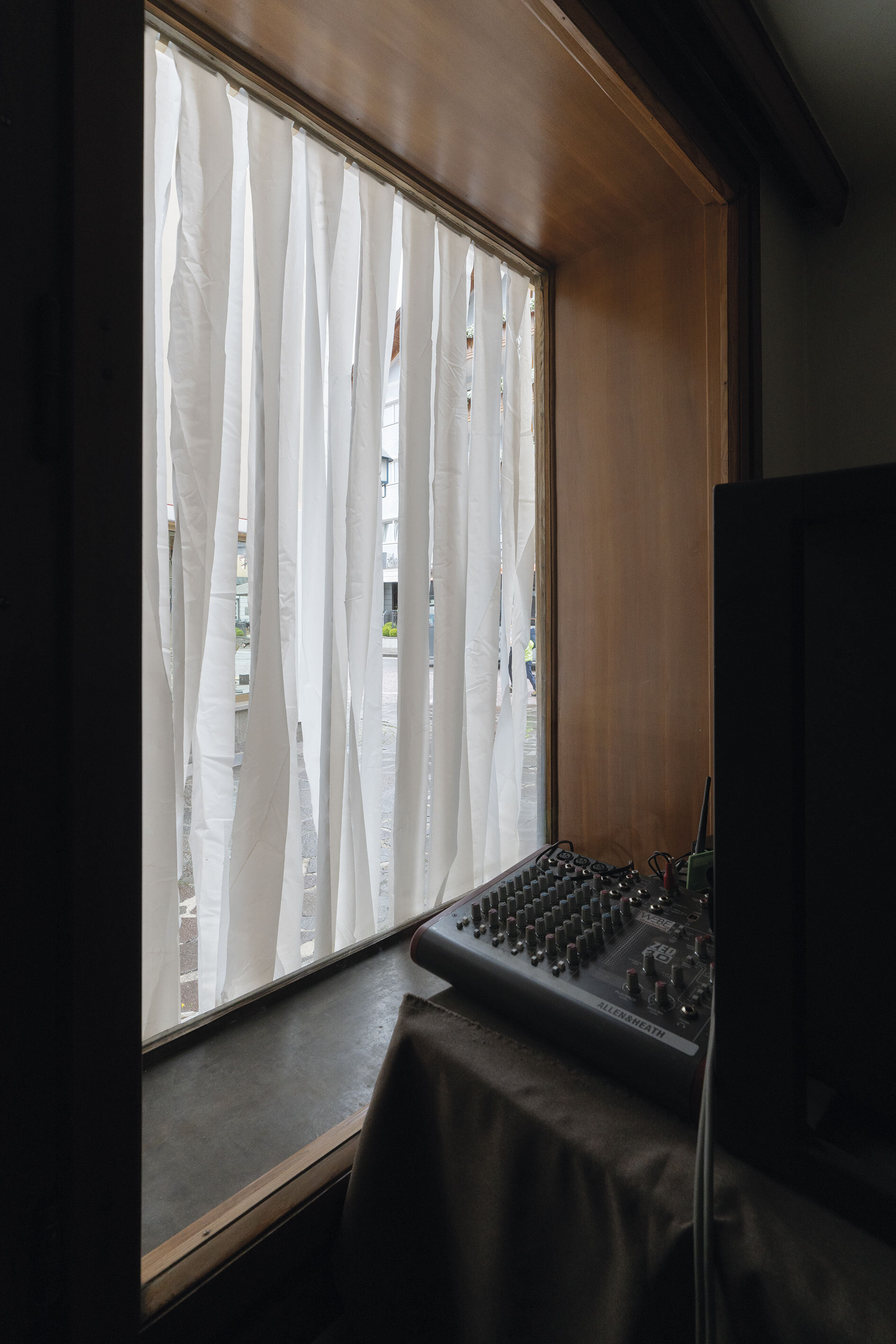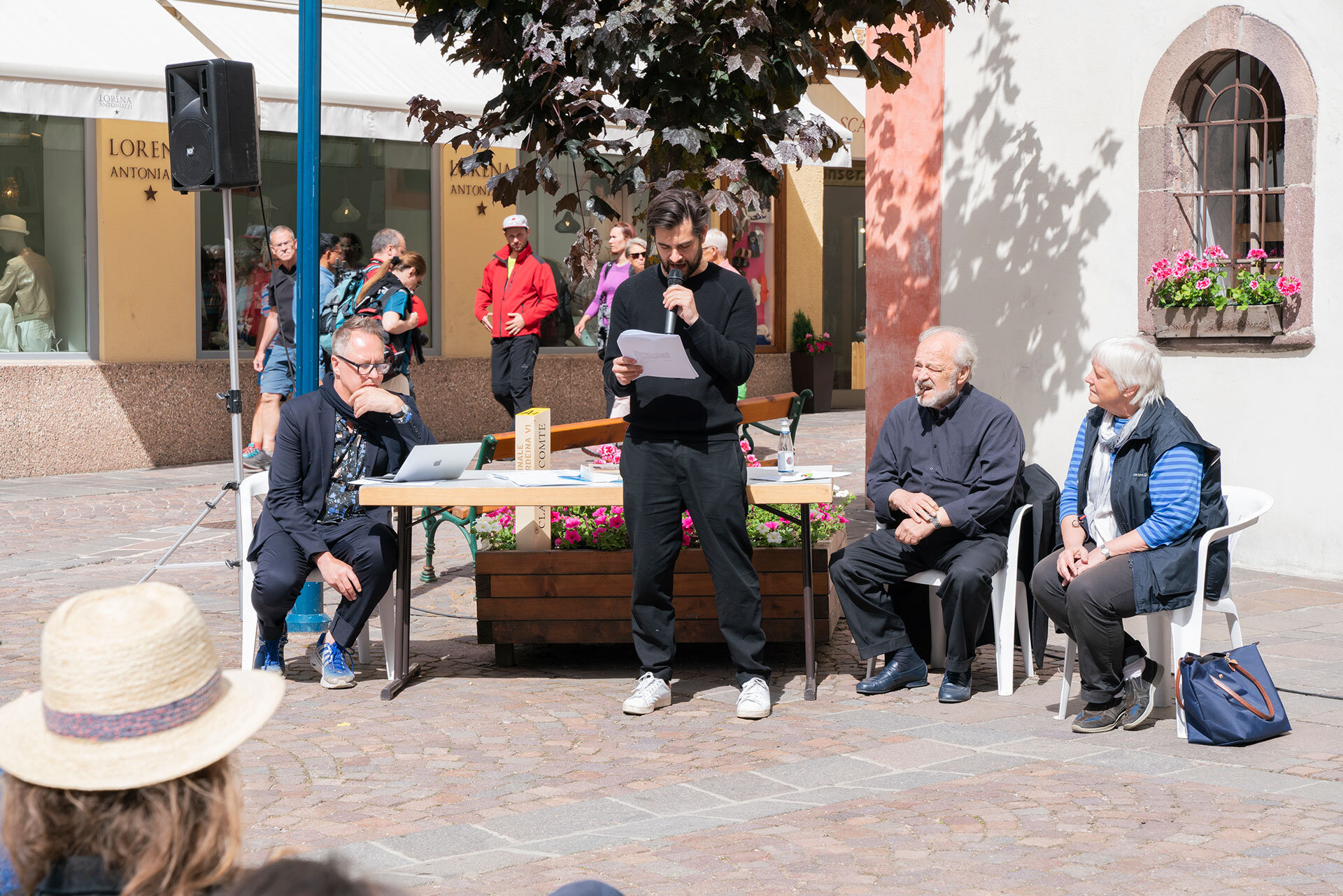
Alessandro De Francesco
*1981, Italy
lives and works in Basel, Switzerland
EN
Poetic narrative Überwasser / Sureghes/ Oltretorrente by Alessandro De Francesco, commissioned for the Biennale Gherdëina VI and conceived by the artist during a short residency in Val Gardena, is a manifesto of an “intimate immensity” of the Dolomites: a series of sensual tableaux that along with a lexicon of the nature’s elemental language provide a prototype for WRITING THE MOUNTAINS multiple scenarios. De Francesco’s six short poems explore in a gestural and subjective way the essence of a site, its lyrical dimension and a relationship with a human being; his is an imaginary conversation with the woods and the waters, the peak’s curved lines, the infinite skin of space…; an act of poetic generosity and an acknowledgment of the nature’s hospitality and uniqueness.
Alessandro De Francesco considers poetry as an artistic practice; his work which he describes as “language art” focuses on the interaction between poetry, sound art, installation, digital writing, and page design. De Francesco "reading environments" and "augmented writing" consist of sonic and visual enhancements of multiple textual materials by means of reading digital voice processing and writing design software.
Alessandro De Francesco and Adam Budak prepared a series of questions to ask to people who could represent the community of Val Gardena. The interviews were conducted by Adam Budak with a participation of Beatrix Insam, Moritz Senoner, Ivan Senoner, Alexandra Grant Senoner, Hannes Senoner, Gabriel Moroder, Simon Moroder, Tobia Moroder.
From these interviews originated a film, shot and edited by Santiago Torresagasti, and a sound installation realized by Alessandro De Francesco with the voices recorded during the interviews.
ith Un motore poetico, Dolomitithe artist pays a tribute to Val Gardena local community. A series of interviews with some representatives of the region’s political, cultural and social life develop the notion of belonging and emphasize the significance of the natural environment and its influence upon everyday life as well as upon the construction of an individual and a collective identity.
IT
La narrativa poetica Überwasser/Sureghes/Oltretorrente di Alessandro De Francesco, commissionata per la Biennale Gherdëina VI e concepita dall’artista durante una breve residenza artistica in Val Gardena, è il manifesto dell’ “intima immensità” delle Dolomiti. Si tratta di una serie di tableaux sensuali che, insieme al lessico del linguaggio elementale della natura, offre un prototipo per gli scenari multipli di WRITING THE MOUNTAINS.
Le sei brevi poesie di De Francesco approfondiscono in modo gestuale e soggettivo l’essenza del luogo, la dimensione lirica e il rapporto con un essere umano. Il suo dialogo immaginario avviene con i boschi e le acque, con le linee curve delle vette, con la pelle infinita dello spazio… Un atto di generosità poetica e un riconoscimento dell’ospitalità e dell’unicità della natura.
Alessandro De Francesco vede la poesia come pratica artistica e le sue opere, definite da lui “arte del linguaggio”, sono focalizzate sull’interazione tra poesia, arte sonora, installazione scrittura digitale, e progettazione della pagina. Gli “ambienti di lettura” e la “scrittura aumentata” di De Francesco consistono in valorizzazioni sonore e visive di materiali testuali multipli tramite software relativo all’elaborazione digitale della voce e alla progettazione della scrittura.
Alessandro De Francesco e Adam Budak hanno stilato una serie di domande da rivolgere a persone adatte a rappresentare la comunità della Val Gardena. Le interviste sono state condotte da Adam Budak con la partecipazione di Beatrix Insam, Moritz Senoner, Ivan Senoner, Alexandra Grant Senoner, Hannes Senoner, Gabriel Moroder, Simon Moroder e Tobia Moroder.
Da queste interviste sono nati un film, girato e montato da Santiago Torresagasti, e un’installazione sonora realizzata da Alessandro De Francesco con le voci registrate nel corso delle interviste.
Con Un motore poetico, Dolomiti, l’artista vuole rendere omaggio alla comunità locale della Val Gardena. Una serie di interviste con alcuni rappresentanti della vita politica, culturale e sociale del territorio sviluppa la nozione dell’appartenenza, sottolineando il significato dell’ambiente naturale e della sua influenza sulla vita quotidiana, nonché sulla costruzione di un’identità individuale e collettiva.
DE
Die poetische Erzählung Überwasser/Sureghes/Oltretorrente von Alessandro De Francesco, die für die Biennale Gherdëina VI während eines Aufenthalts des Künstlers im Grödnertal entstand, ist ein Manifest der „intimen Unermesslichkeit“ der Dolomiten. Eine Serie sinnlicher Tableaus bilden zusammen mit dem Vokabular der elementaren Sprache der Natur einen Prototypen für die verschiedenen Szenarien von WRITING THE MOUNTAINS. Die sechs kurzen Gedichte von De Francesco erkunden auf gestische und subjektive Weise die Essenz eines Ortes, seine lyrischen Dimensionen und die Beziehung zum Menschen. Der Künstler führt eine imaginäre Unterhaltung mit den Wäldern und dem Wasser, den geschwungenen Linien der Gipfel und der unendlichen Haut des Raums …; in einem Akt der poetischen Großzügigkeit und Anerkennung der Gastfreundschaft und der Einzigartigkeit der Natur.
Alessandro De Francesco betrachtet Poesie als künstlerische Praxis; seine Arbeiten, die er als „Sprachkunst“ bezeichnet, konzentrieren sich auf die Interaktion von Poesie, Klangkunst, Installation, digitalem Schreiben und Seitendesign. De Francescos „Leseräume“ und sein „erweitertes Schreiben“ bestehen aus klanglichen und visuellen Verstärkungen verschiedener textlicher Materialien mit digitaler Stimmverarbeitung und Schreibdesign-Software.
Alessandro De Francesco und Adam Budak bereiteten eine Reihe an Fragen für die Menschen, die die Gemeinschaft von Val Gardena repräsentieren könnten, vor.
Die Interviews führte Adam Budak mit Beatrix Insam, Moritz Senoner, Ivan Senoner, Alexandra Grant Senoner, Hannes Senoner, Gabriel Moroder, Simon Moroder und Tobia Moroder.
Aus diesen Interviews entstand ein Film, der von Santiago Torresagasti gedreht und geschnitten wurde und den Alessandro De Francesco mit Klanginstallationen aus den Stimmen, die während der Interviews aufgenommen wurden, unterlegt hat.
Mit Un motore poetico, Dolomiti würdigt der Künstler die Bevölkerung von Val Gardena. Eine Serie von Interviews mit Vertretern des politischen, kulturellen und sozialen Lebens entwickeln die Vorstellung von Zugehörigkeit und unterstreichen die Bedeutung der natürlichen Umgebung und ihres Einflusses auf das tägliche Leben und die Konstruktion einer individuellen und einer kollektiven Identität.



